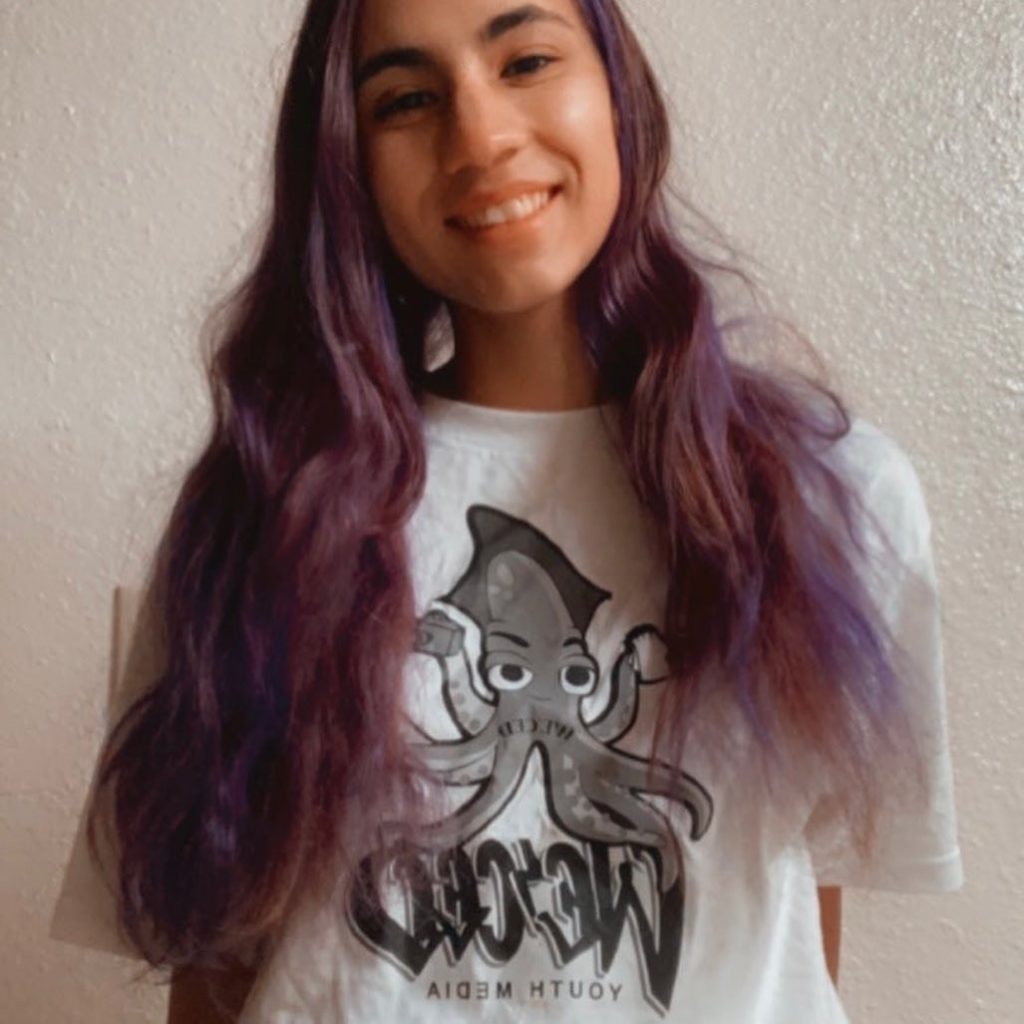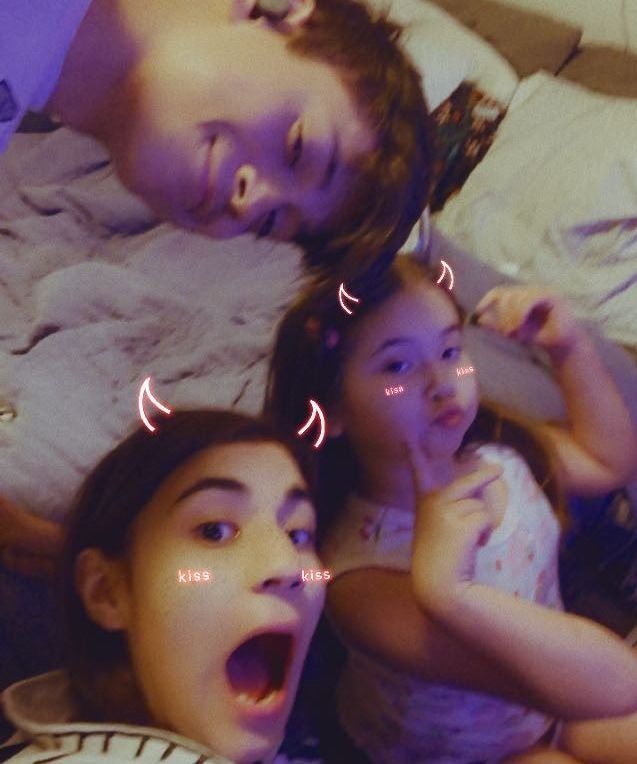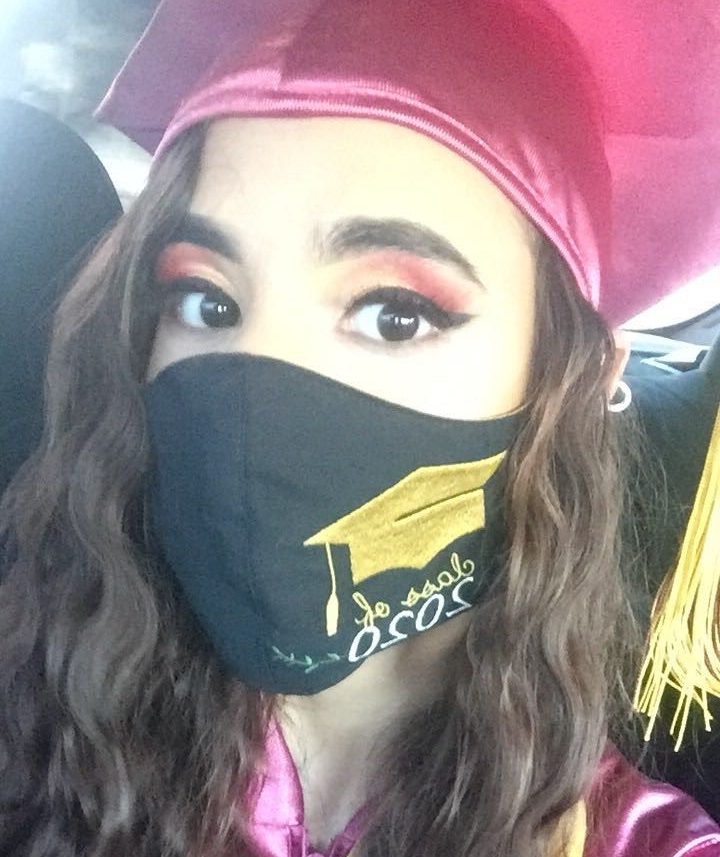A core belief of Youth Leadership Institute is that there can only be true justice and community change if those most affected are a part of decision-making. Young people must have a place “at the table” in order to make our communities places where everyone has the opportunity to thrive. It is yli’s job to run programs and trainings to make sure that young people are included at the table as often as possible so that youth voice will shape the future we are building together.
Read Stephanie Gurtel’s story below, and consider investing in youth at the table. Click here to contribute!

My people are all the people who don’t fit in with the people who do fit in. I’m one of the most anxious people I know, and social interaction is hard for me. So when I walked into my first We’Ced meeting and there was a room full of people close to my age, I thought, “Oh my god, there’s people here.” But I eventually made friends, and it helped me grow in many ways. For example, I met some people who had been in the foster care system and learned a lot about their experiences.
I was born and raised in Merced. I started going to We’Ced meetings in 2016 after I graduated from middle school. We’Ced is one of yli’s youth media hubs. My aunt was an alumni and had been trying to get me to go for a while. I’ve always been really into writing – I’ve been writing poetry since elementary school. A lot of it is sad, but it feels like the best way for me to authentically express myself in a healthy way.
The biggest project I’ve worked on in the past 4 years was an interview I did with rapper Common for a Schools Not Prison event. It was the first piece I created where I was on video, and I was super anxious. The event took place on Main Street at the downtown theater. I sat down with him before his performance and interviewed him about the Schools Not Prisons movement. I am really passionate about this movement because I’m a Brown woman and have Black family, and people like me and my cousins suffer a lot more from the prison system than those who don’t look like us. I feel like I have to fight for me and my family.
Listening to his music, I knew Common had a platform as a rapper and philanthropist. The interview was published on We’Ced’s YouTube channel, and I know that a lot of my family and people in town saw it. My hope was that the video would inspire other youth and give them hope – that it would make the world just a little bit warmer.
Through this experience, I learned that I’m actually capable of doing things that are bigger than me – that I could actually affect things. It was a big step for me in that I felt confident enough to do it. Having the space and the support to express myself in this way gave me a more hopeful view of humanity. Everyone is a person, and I’m a person, too. Everyone is nervous meeting new people. I like to think other humans are understanding of that – that other people are just people feeling the same feelings that I am.
I believe that it’s really important to push yourself to do things like this. You can’t grow if you’re stuck in your comfort zone. You have to push beyond that to seek out the lessons you have to learn. And I think my generation is really equipped to do it. We have a different kind of consciousness, openness – we have a broader scope for understanding each other. From what I see, we’re a lot more open minded, inclusive, and willing to fight to make sure we can be ourselves. For example, the gender spectrum is a lot more validated in my generation. My friends are accepting of me as a person who is genderqueer. I think that this is partly due to technological advances. We spend a lot more time researching and have more access to new ideas.

In general, I think youth are more emotionally available, responsible, and more understanding and caring of other people’s feelings. We assess both sides of an argument and consider everyone’s feelings. Sometimes we are referred to as snowflakes, but the emotional investment in each other is really strong. There are different generational standards – older generations are harsher with children. When I was little, my house wasn’t always super emotionally communicative, so I try to cultivate that in my world. Our generation has a lot more tools, whether we found them ourselves or got them from our parents.
Youth definitely need to be at the table because we are affected by rules, regulations, and policy. We need to be able to represent ourselves and our community because we have us – we’ve got each other’s backs – and we understand us pretty well. Through technology, we’ve become tightly knit and can band together to get things done.
Ageism is definitely one of the biggest issues of youth representation. Even in spaces designed for us to have room to speak, we are often told how to do things or our ideas are shoved aside. Two years ago, a group of We’Ced youth went to the state capitol to talk about some of the bills and how they will affect us. Although the elected officials seemed willing to listen to us – and it felt good to be able to express what we felt – when it really came down to it, the adults gave a lot more attention to our adult ally. They kept looking to them for answers instead of at us.
It’s true that we are young people with less experience in this world. But your age does not signify your capabilities and to assume that we are incapable because we are young is ignorant. Our experience is still relevant, and we will definitely experience repercussions of decisions made even if we weren’t a part of making them.
Another barrier to youth representation is environmental. I live in a small town, I don’t have a car. If I want to get around, I have to take the bus, and if I can’t afford the bus, I have to walk or bike. As youth, we don’t have as many opportunities to make money. Trying to get around can be emotionally exhausting. We need resources in order to establish ourselves and get engaged in making change.

I think a truly representative society will enable and empower individuals to grow and to be themselves. When people are good with who they are, they’ll naturally want to make things better. I want to see young people involved in city planning. In a town like Merced, there’s nothing for us to do except go to the mall, which is half-way closed. When young people don’t have things to keep us busy, we turn to unhealthy things like drugs, unprotected sex and parties. By investing in youth activities, we can keep young people healthy, we can keep them from moving away, and cultivate our town’s history.
